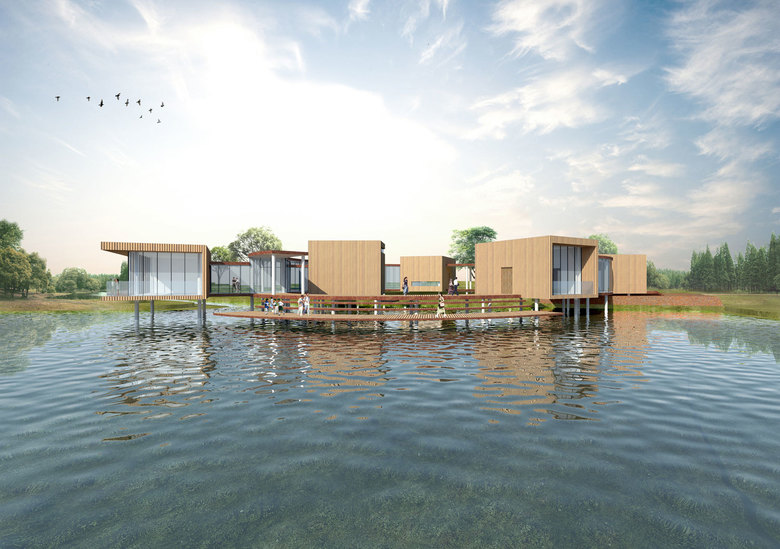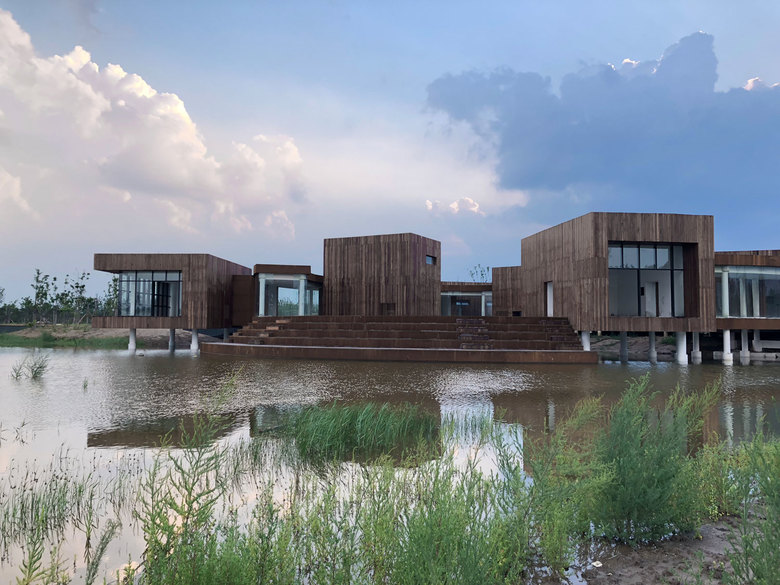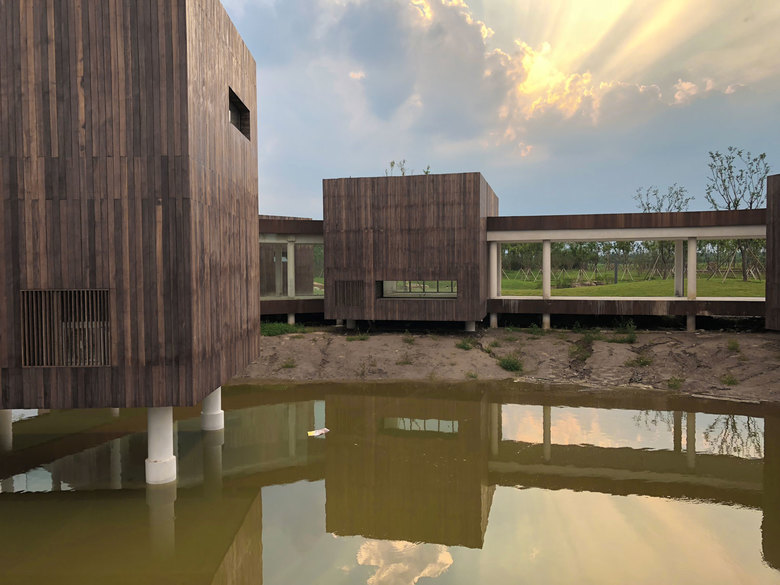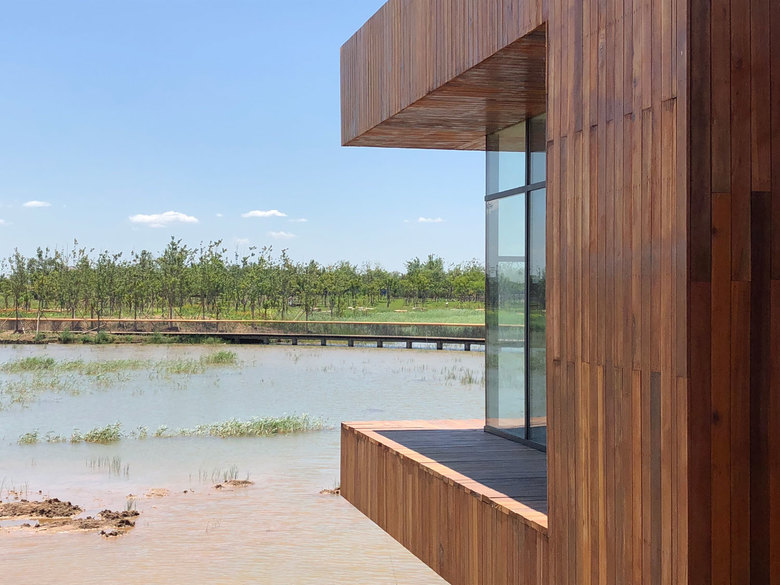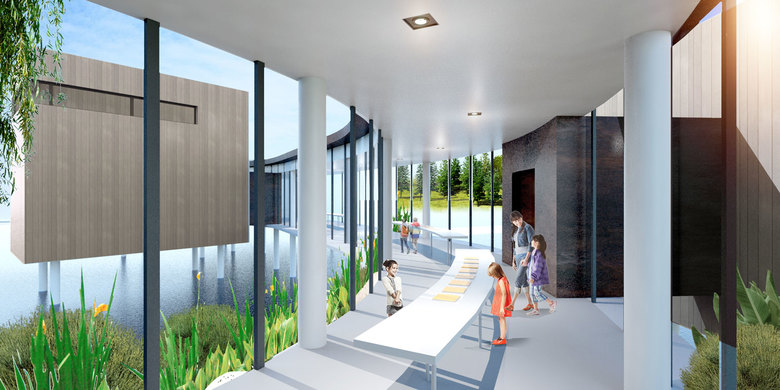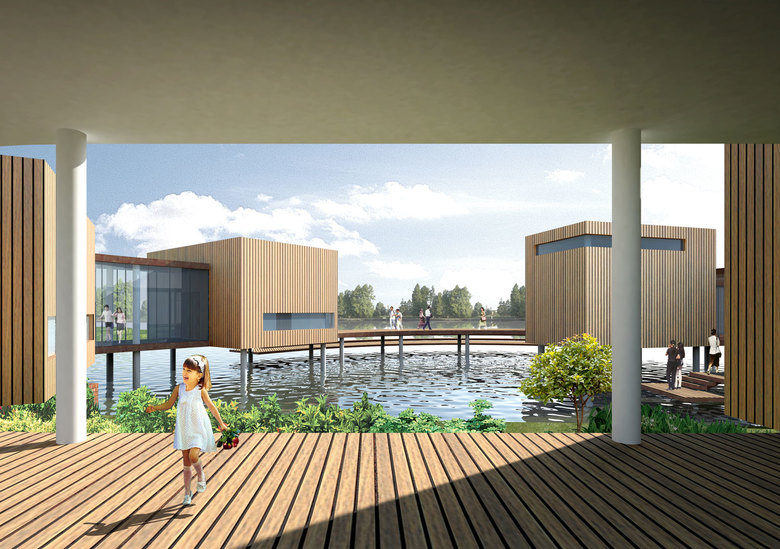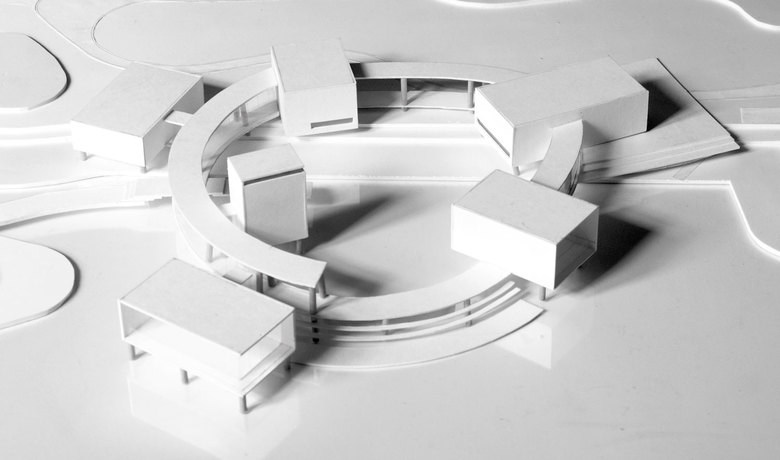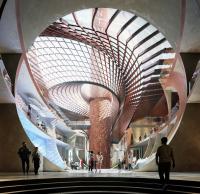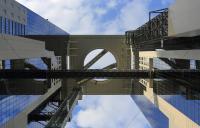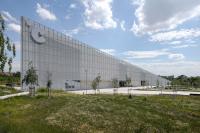Museum for aquatic plants
Hebei, China
Museum for Aquatic Plants is located in Hengshui, Hebei province. The three pavilions are located on terrestrial ecology, and three pavilions are located in the water ecology. A circular corridor connects six pavilions in tandem.
Connection of Terrestrial Ecology and Water Ecology
The museum is built at the boundary of the land and the lake, half wading and half on the ground. Because the site contains water and terrestrial ecology, we have found a tipping point to place the building in between, so that visitors’ experience of water and land is linked together. The six cubic spaces are independent. While the ring corridor connects these individuals. Visitors can walk through this corridor, from the ground to the water, and back forward. This smooth geographical transition provides people with a chance to walk through different natural environments, and feel the transformation of the landscape. At this point, visitors not only stay on the shore to view but also stand on the surface of the water, which offer a different viewing angle. Thus, the experience of ecological diversity is more profound. At the same time, this closed annular corridor naturally creates a circular public space containing both landscape. Such a design is not only a respect for the site but also a greater degree of human interaction with plants.
